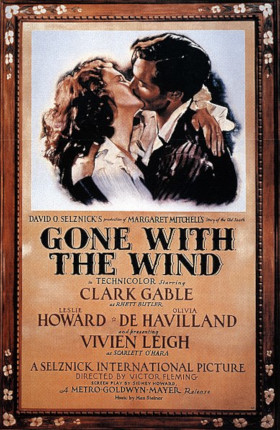Olga Scowen (OS-95-190)

Armando Seguso (per Heritage Auctions), Public domain, via Wikimedia Commons
In April 1995, a local newspaper in the London suburb of Harrow published an item about Cinema Culture in 1930s Britain, and Olga Scowen contacted the project with an offer to take part, joining the eighteen individuals based in and around Harrow who were interviewed as core informants later that year. Born in Harrow in 1918 and one of three children, Mrs Scowen had lived in the area all her life aside from a brief spell in Blackpool early in the war. Her father was a journalist, her mother a housewife. She attended Harrow County Grammar School, leaving at the age of sixteen to take up a Clerical Grade post in the Civil Service, which she left on her marriage. She was interviewed at her home in South Harrow on 7 June and 18 June 1995, and in 2000 took part in a questionnaire survey about her memories of the Tarzan films.
In her first interview Mrs Scowen demonstrates an encyclopaedic knowledge--and a continuing interest--in 1930s and 1940s films and stars, naming close to sixty films and describing how she and her friends would visit Harrow market to buy second-hand film magazines and stick stars' photos in albums. She recalls that later, with her husband a prisoner of war for five years, she found cinemagoing helped combat boredom as it “set you in another world”, and that she would feel something was missing if she didn’t go to the pictures several times a week. She details the cinemas she visited in and around Harrow, and the special ‘cinema bus’ that transported people up to the 'Cosy' picture house on Harrow on the Hill. Discussing her film and star preferences, she notes that she was not keen on British films (“in the old days they were dreadful”), but loved musicals and romances, and recalls seeing Jeanette MacDonald perform live in London. She finds war films particularly interesting because they show “what we’d lived through”, and that cinema newsreels were informative as there was no radio at home. Throughout, Mrs Scowen highlights the importance of cinemagoing for her: “The cinema was really the centre of our lives in those days." In preparation for her second interview, Mrs Scowen had drawn up categorised lists of stars and films remembered from the 1930s and 1940s, and the ensuing conversation ranges over the hundred or more stars and sixty-odd films on her lists, as she highlights her likes and dislikes: "I didn't like the rough Yankee knockabout types. I liked, I liked the Englishmen, you know." She enthusiastically leafs through a 1938 film annual, offering snippets of detail on films and actors, explaining why she enjoyed particular sorts of films, recalling that she would often get books out of the library to read before going to see certain pictures, and noting that her opinion of actors was based on personality rather than acting ability. She recalls being impressed by the comparative luxury of lifestyles on display in Hollywood films--the ubiquity of refrigerators in American homes above all--and comments that American styles and fashions influenced how people in Britain dressed and did their hair.Interview transcript | Listing of cinemas, films and stars mentioned
Audio-synced interview (2 of 2)
Interview transcript | Listing of cinemas, films and stars mentioned
Documents, Memorabilia and Related Links
Harrow home pageThe Granada, Harrow (cinematreasures.org site)
Extract from The Private Life of Henry VIII, (1933) (YouTube)
Betty Hutton singing 'Murder, he says', (1947) (YouTube)
Trailer for Dark Victory (1939) (YouTube)
The Elite, the Cosy and the Cosy bus (News & Blog area)